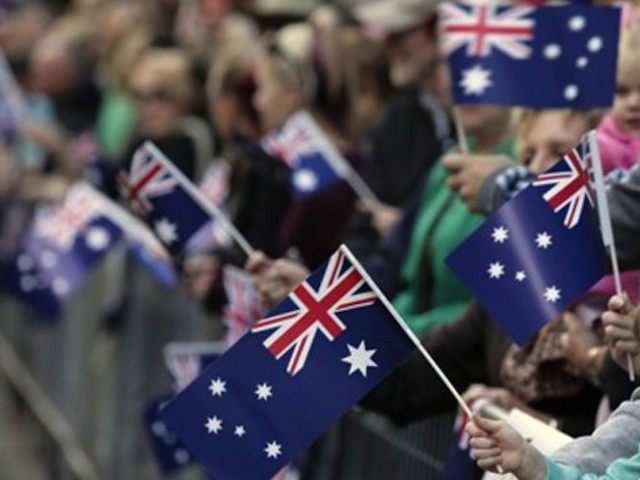Australia’s trade minister denied allegations on Saturday by China’s Ministry of Culture and Tourism that Chinese and Asians face increased “racial discrimination and violence” in Australia due to the coronavirus pandemic, the Epoch Times reported on Monday.
China’s Ministry of Culture and Tourism issued a travel advisory on June 5 telling its citizens not to travel to Australia. The ministry claimed, without providing any evidence, that Chinese and Asians face a threat of “violence” at the hands of Australians due to racism:
Recently, due to the impact of the New Coronary Pneumonia [Chinese coronavirus] epidemic, racial discrimination and violence against Chinese and Asians in Australia has increased significantly. The Ministry of Culture and Tourism reminds Chinese tourists to raise their awareness of safety precautions and not to travel to Australia.
Responding to the accusation on June 6, Australia’s Minister for Trade Simon Birmingham told the Australian Associated Press (AAP), “We reject China’s assertions in this statement, which have no basis in fact. Our rejection of these claims, which have been falsely made by Chinese officials previously, is well known to them.”
Birmingham added that, although it was unfortunate that Australia had been forced to close its borders to China during the pandemic to prevent the spread of the Chinese coronavirus, “it proved to be a critical decision in keeping Australians safe from the devastation faced by much of the rest of the world.”
“Australia is enjoying world-leading success in suppressing the spread of COVID-19 [Chinese coronavirus] and, when the health advice allows, we look forward to again welcoming visitors from all backgrounds to our safe and hospitable nation,” Birmingham added.
Deputy Prime Minister Michael McCormack also denied China’s allegations that racism against Asians was prevalent in Australia, telling the AAP on June 6, “There hasn’t been a wave of outbreaks of violence against Chinese people [in Australia].”
“I don’t know why this has been stated, I don’t know what was in the thinking of the organization or the person who made the statement, all I can say is the statement is not true,” McCormack said.
China has been widely criticized by the international community for its racial discrimination against ethnic minority groups during the coronavirus pandemic.
In April, in the southern Chinese city of Guangzhou, overtly racist actions were taken against the city’s minority African population by the ethnic Han Chinese majority, drawing international condemnation. The Han Chinese blamed Guangzhou’s foreign African population for a perceived “second wave” of coronavirus infections in the region at the time, although many health authorities believe the first wave of infections in China never subsided and the reported “second wave” was a continuation of the first. During the backlash, Africans in the city were denied entry to stores and restaurants. Some were charged double in rent, while others were evicted from their homes and forced to sleep on the street. Despite having no recent travel history or contact with known coronavirus carriers, Africans in Guangzhou were arrested and deported by Chinese authorities.
International leaders publicly denounced the mistreatment of Africans by the Han Chinese in Guangzhou. In April, Kenya’s Foreign Affairs Principal Secretary Macharia Kamau said at a press briefing:
Africans, Kenyans included, have been discriminated against in the process of the provincial government’s response to try and mop up the situation that they are facing there after the crisis that they had over the last few months. Sadly, they have discriminated against and targeted various foreigners in their response. The African Union has responded collectively in consultation with us.
China’s allegations of racism in Australia came hours after the Australian government announced on Friday new changes to the country’s foreign investment laws, widely viewed as an attempt to curb Chinese influence in Australia.
The tighter restrictions on foreign investment were announced by Prime Minister Scott Morrison and Treasurer Josh Frydenberg, who described the changes as “the most significant reforms to Australia’s foreign investment framework in nearly 50 years.” Treasurer Frydenberg said the reforms were intended to protect Australia from foreign investment “used for strategic objectives, not purely commercial ones,” adding that the government will implement a new “national security test” to ensure a possible foreign investment is in Australia’s “national interest.” Under the new guidelines, the government will levy strict penalties for failure to adhere to foreign investment rules. A new “last resort” power was announced that would allow the treasury to break up foreign investments in exceptional cases.
Diplomatic tensions between China and Australia have steadily increased since April, when Australian Foreign Minister Marise Payne called for an official inquiry into the origins of the Chinese coronavirus, which was first documented in Wuhan, China, late last year. The Chinese Communist Party (CCP) has been widely condemned by the international community for suppressing knowledge of its initial coronavirus outbreak in Wuhan, allowing the epidemic to spread to other countries and cause the global pandemic currently devastating the world’s public health and economy.
Australia’s support of the global consensus demanding China be held accountable for its role in spreading the deadly virus has seen the CCP retaliate by imposing a series of trade restrictions on Australian products exported to China. In May, China foisted tariffs on Australian barley, suspended beef imports from four major Australian sellers, and urged Chinese power plants not to purchase coal from Australia.

COMMENTS
Please let us know if you're having issues with commenting.